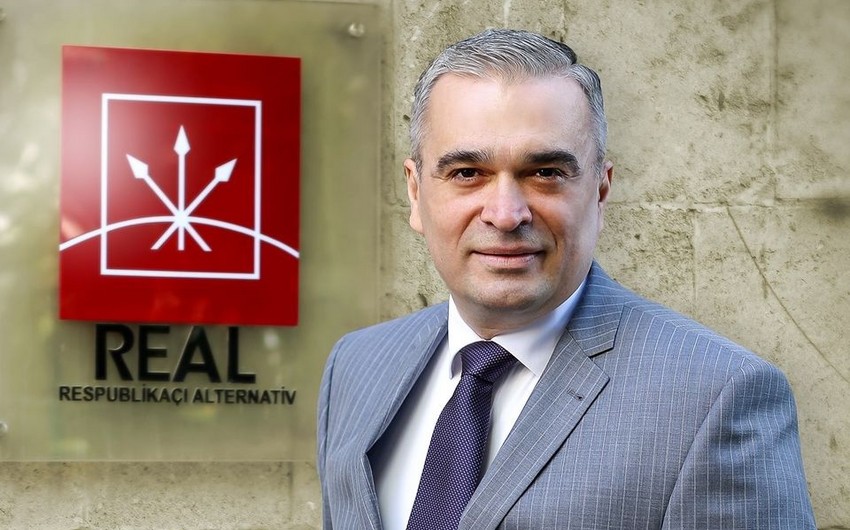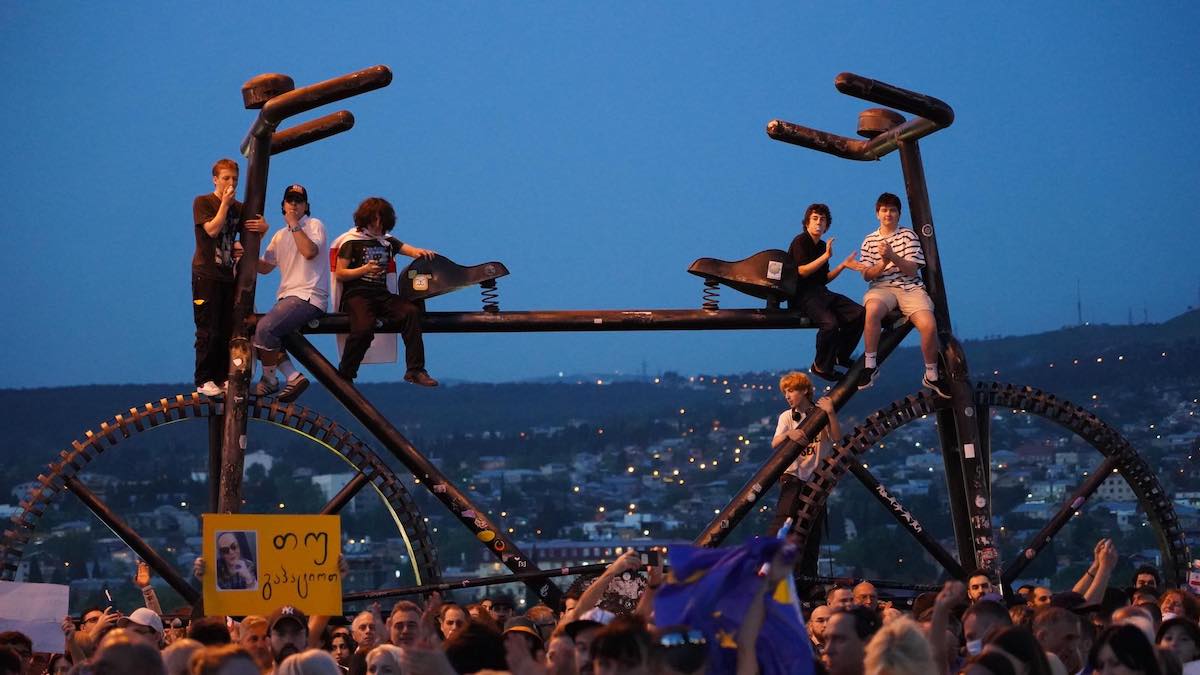What's happening in Georgia and why? A perspective from Baku
Azerbaijani politician on Georgian protests
In Georgia, protests persist against the parliament’s approval of the foreign agents law. Meanwhile, neighboring Azerbaijan is closely monitoring these events.
“With parliamentary elections set for October in Georgia, the decision to pass a contentious law just before the polls seems odd and questionable. The government could have waited six months, yet it deliberately handed the opposition a powerful issue, especially knowing that the president supports the opposition on this matter. It makes you wonder why,” ponders Ilgar Mammadov, chairman of the opposition party “Republican Alternative” and a former political prisoner.
- Gas and rubber bullets on May 1st night: dispersal of Tbilisi protests against foreign agents bill: Photos and videos
- “To calm everyone down in the long term, we need to adopt the foreign agents bill,”- the Prime Minister of Georgia
- Kremlin offers Georgia territorial integrity for “foreign agents” law? Opinion from Abkhazia
“What impact could the mass protests in Georgia, aimed at opposing the adoption of a law that is said to pressure civil society, have on Azerbaijan? And how will they end?
No, we won’t see tens of thousands taking to the streets in Azerbaijan to protest against similar laws enacted in 2013. Even though those laws created conditions for arresting civil society activists, which are still ongoing. The issue of socio-political freedoms isn’t a priority here yet. And it won’t change until oil and gas money keeps flowing in the economy, providing some benefits to everyone, and until there’s a decrease in these funds.
Now, back to Georgia. Parliamentary elections are scheduled for October in the country. The attempt to pass a law causing tension just before the elections seems odd and dubious. The government could have waited six months, but deliberately handed the opposition a talking point, knowing that the president supports the opposition on this issue. It’s intriguing, isn’t it?”

“Of course, this is Georgia’s internal affair. I’m trying to assess these events solely from Azerbaijan’s perspective.
Let’s say the law gets passed, and as promised, the president vetoes it. Parliament might override the veto, but in that case, the president would lose her position. Considering the protest movement involved in this political drama, there’s also a chance of the government resigning.
Neither Moscow nor its Abkhazian and South Ossetian supporters will undoubtedly watch quietly. They would view the government’s resignation as a coup. This is echoed by Russian analysts who unanimously argue that in 2008, the Russian army shouldn’t have withdrawn from Georgia”.
“After this, even more dramatic events could unfold. The Russian army, having just gained valuable combat experience, could, under some pretext, quickly occupy Georgia, and gain a border with Armenia. In such a scenario, the Armenian government under Pashinyan would face a serious dilemma. Eventually, Azerbaijan would also have to adapt to the new situation.
In short, despite the democratic nature of the protests and the current tension in Georgia, behind it all could lie a very cunning strategic calculation by Russia. Indeed, the decision to create tension or not—this was all in the hands of the Ivanishvili government, known for its warm relations with Russia.
So why did the Georgian government choose to escalate tensions instead of campaigning based on the significant achievements of recent years before the elections, which are just six months away, to strengthen its position?
Russia has long complained that the West is trying to open a second front against them in Georgia. It’s entirely possible that in Russia, they thought: it’s better to open this front now, at a convenient time for the Kremlin, and address the issue at its core, rather than wait for the front to open at an inconvenient time for Moscow.
If the law is somehow passed and tensions ease, gradual neutralization of the circles financed by the West will begin in Georgia, and Russia will establish a neighborly relationship on its terms,” wrote Ilgar Mammadov, chairman of the opposition party “Republican Alternative” and a former political prisoner, in his Telegram channel”.



















